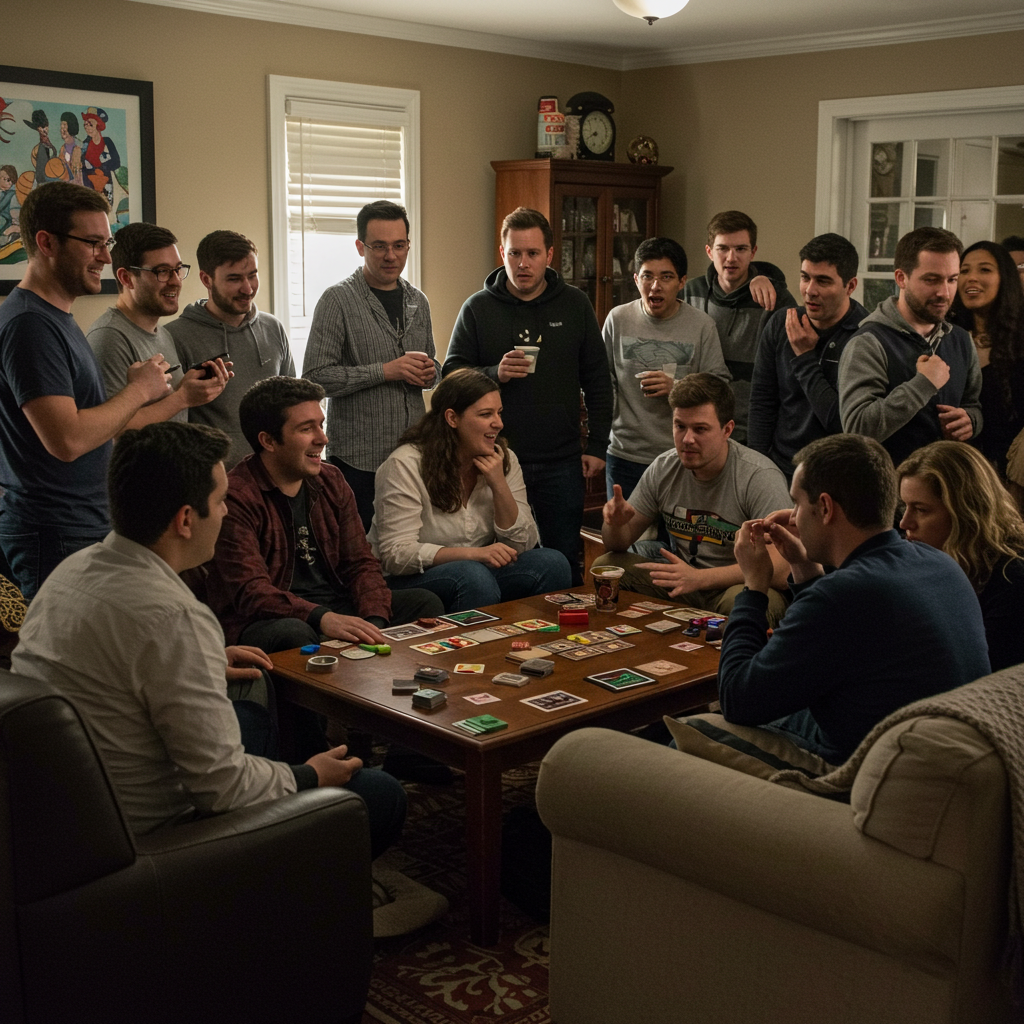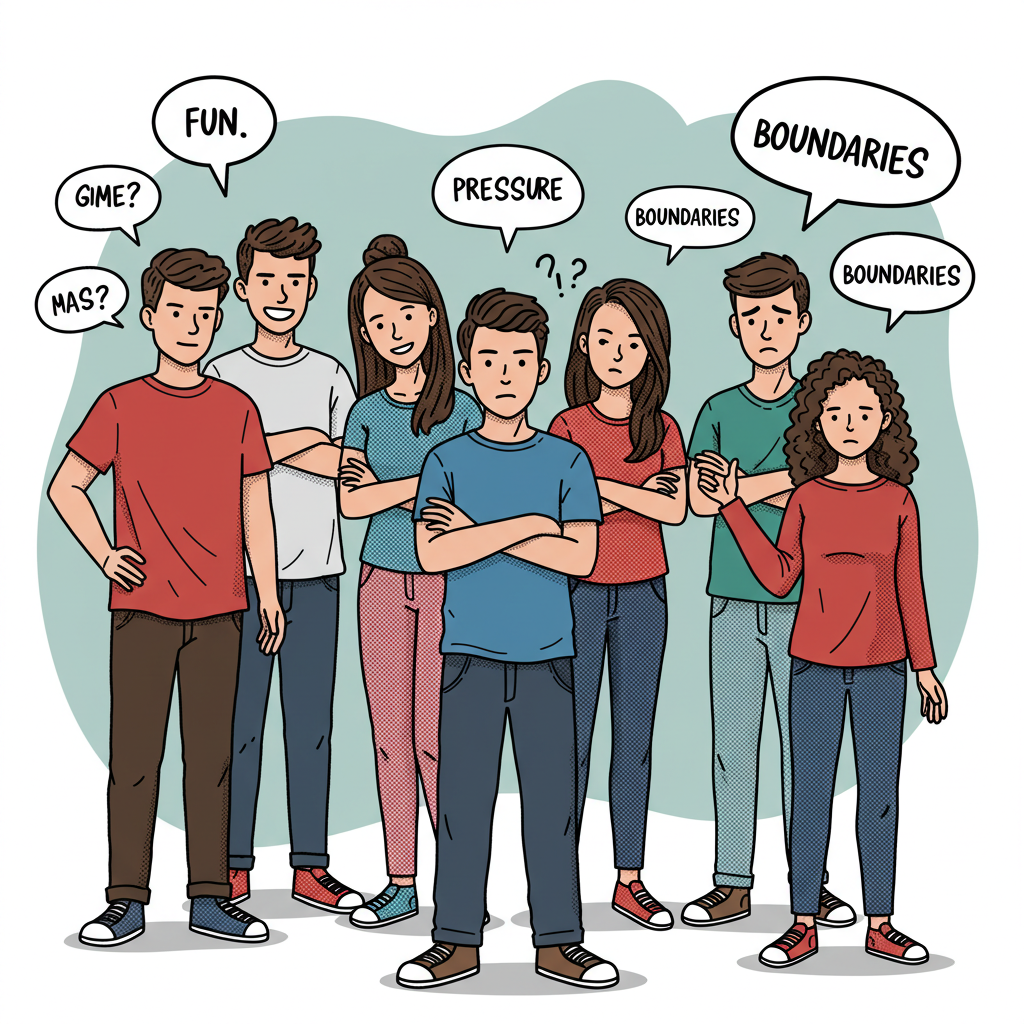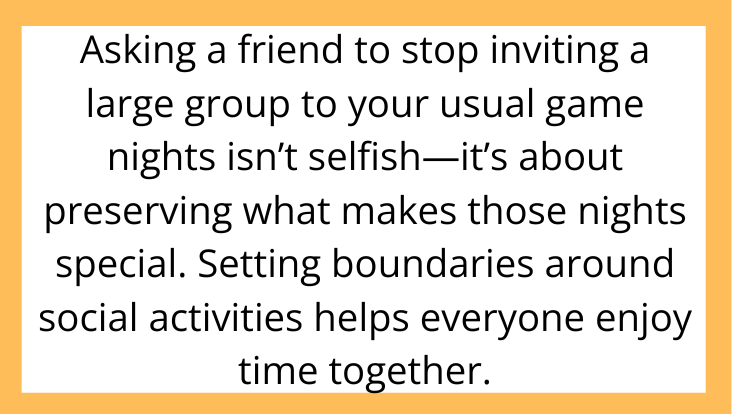Game nights are supposed to be a relaxing way to unwind with friends, but what happens when the vibe completely changes? Recently, someone on r/AITAH shared a dilemma about asking their close friend to stop inviting a large, noisy group to their usual intimate game nights. The question: was it wrong to ask for a quieter, smaller gathering?
In this blog post, we’ll dive into the challenges of balancing social preferences, maintaining friendships, and communicating boundaries when group dynamics shift unexpectedly.
The Situation: When Fun Becomes Overwhelming

The original poster (OP) described how they and a small group of friends had a weekly game night, usually with 4-6 people. It was low-key, focused on strategy games and conversation. However, one friend started inviting their entire friend circle—sometimes 10 or more people—turning calm game nights into loud, chaotic parties.
OP felt uncomfortable and found it hard to enjoy the event. After a few nights like this, OP politely asked their friend to keep game nights smaller and quieter.
The friend reacted with surprise and hurt, saying OP was being “antisocial” and ruining the fun.
Why Setting Boundaries Is Important for Personal Enjoyment

Everyone has different social energy levels and comfort zones. Here’s why OP’s request makes sense:
-
Maintaining atmosphere: Some games require focus and calm, which large groups can disrupt.
-
Respecting hosts: Game nights often take effort and planning; overcrowding adds stress.
-
Honoring friendship dynamics: Intimate gatherings nurture closer bonds, which can get lost in bigger crowds.
It’s healthy and reasonable to ask for environments where you can relax and be yourself.
How to Communicate Boundaries Without Hurting Feelings

Telling a friend to change how they socialize can be delicate. Consider these tips:
-
Be honest but kind: Explain how the change affected your enjoyment without blaming.
-
Suggest alternatives: Propose separate events for bigger groups and small game nights.
-
Reassure your friendship: Emphasize that your request is about the event, not them personally.
-
Listen actively: Understand their perspective and find compromise.
Good communication keeps friendships strong even when preferences differ.
Why Some People Resist Limits on Socializing

To some, asking for smaller gatherings may seem “anti-fun” or exclusionary. It’s important to recognize:
-
Social needs vary widely.
-
What’s fun for one might be stressful for another.
-
Friendships thrive on respect, not conformity.
Acknowledging these differences fosters empathy.
Final Thoughts: Balancing Fun and Comfort in Friendships

Asking a friend to stop inviting a large group to your usual game nights isn’t selfish—it’s about preserving what makes those nights special. Setting boundaries around social activities helps everyone enjoy time together.
If you’ve faced similar situations, remember: your feelings are valid, and clear communication is key.



